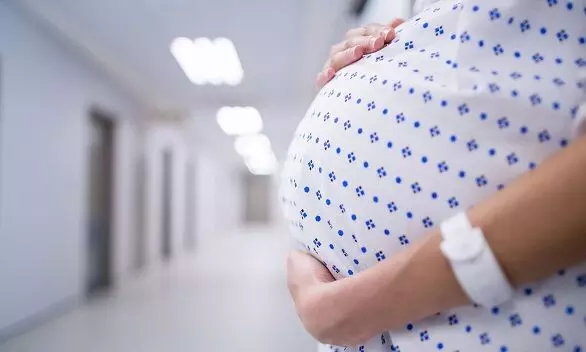
Study finds no reason to delay Covid vaccination during pregnancy
text_fieldsNew York: The best time for pregnant women to get vaccinated against Covid-19 is as soon as possible, says a team of researchers.
The researchers said that Covid-19 vaccination of expectant mothers elicits levels of antibodies to the SARS-CoV-2 outer "spike" protein at the time of delivery that don't vary dramatically with the timing of vaccination during pregnancy and thus, don't justify delaying vaccination.
"Women often ask what is the best vaccination timing for the baby - our data suggest that it's now," said researcher Malavika Prabhu from the Weill Cornell Medicine in the US.
For the study, published in the journal Obstetrics and Gynecology, the team analysed how anti-spike antibody levels in the mother's blood and baby's umbilical cord blood at delivery varied with the timing of prior vaccination in nearly 1,400 women and their babies.
They found that the levels of these antibodies at delivery tended to be higher when the initial vaccination course occurred in the third trimester.
However, they also found that antibody levels at delivery are still comparably high, and probably still protective, when vaccination occurs in early pregnancy or even a few weeks before pregnancy -- and a booster shot late in pregnancy can make those antibody levels much higher.
The team set up a new study to address the question of the best timing for Covid-19 vaccination during pregnancy. The analysis covered 1,359 pregnant women who reported vaccination against Covid-19, during or up to six weeks before pregnancy and gave birth after 34 or more weeks of gestation.
They found that anti-spike antibodies were generally detectable at delivery, in maternal and cord blood, among all the fully vaccinated women, regardless of the timing of their first vaccine dose.
Among women with no history of SARS-CoV-2 infection who received the two-dose Pfizer or Moderna mRNA vaccine, the levels of antibodies at delivery were lowest after pre-pregnancy or first-trimester vaccination and highest after third-trimester vaccination; however, the difference wasn't large.
There was no significant difference in anti-spike antibody levels by timing of vaccination among the relatively small number of women who received the Johnson and Johnson (J&J) single-dose vaccine.
Among vaccinated women who had a prior history of Covid-19 infection, anti-spike antibody levels at delivery in maternal and cord blood were moderately higher on average, and showed even less of a decline with earlier vaccination timing.
In women that did not receive a complete course of vaccination by time of birth, the levels of anti-spike antibodies in maternal blood and in cord blood were significantly lower than all other cohorts including the earliest vaccinated cohort.





